The Workshop Model with Learning Community Charter School Middle School
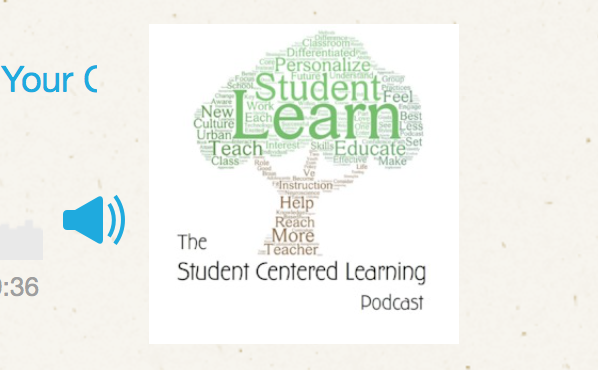
This podcast episode features a conversation with LCCS middle school teachers Erin O’Neil, Domenique Rossi, Cathy Huang and Director Josh Johnson discussing how to implement the workshop model in literacy, math and science classrooms to achieve deeper, personalized, authentic and student-owned learning. In the Student-Centered Learning Podcast, Arthur Eduardo Baraf – SCL Research Collaborative Distinguished Fellow- shares… Read More ›
Performance Assessment Resource Bank

The Performance Assessment Resource Bank works to help states integrate performance assessments into their systems of assessment, develop the capacity of educators to effectively use performance assessment, and design policies to support these efforts. Their website features a large database that will be of interest to both educators and state leaders. Resources include: Over 500 K-12 performance… Read More ›
Tame the Beast: Tips for Designing and Using Rubrics
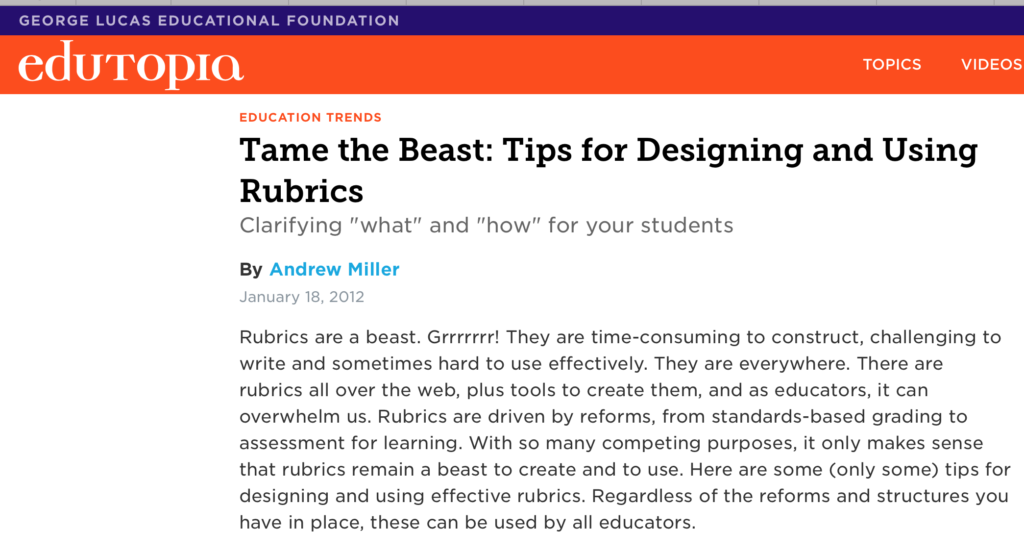
This article provides advice for designing and using effective rubrics from a fellow educator. It also discusses the importance of using rubrics with students. This tool is intended to help educators refine their rubrics. Tips include: Use parallel language Use student-friendly language Don’t use too many columns Rely on Descriptive Language The advice is relevant… Read More ›
Ladder of Feedback for Classroom Observation

Making Learning Visible is a Project Zero initiative that adapted Daniel Wilson’s “Ladder of Feedback” for classroom observations. The “Ladder of Feedback” is a protocol or structure that establishes a culture of trust and support by sequencing feedback in an order that is constructive. This wiki page provides a summary, template, and guide for using… Read More ›
Character Lab
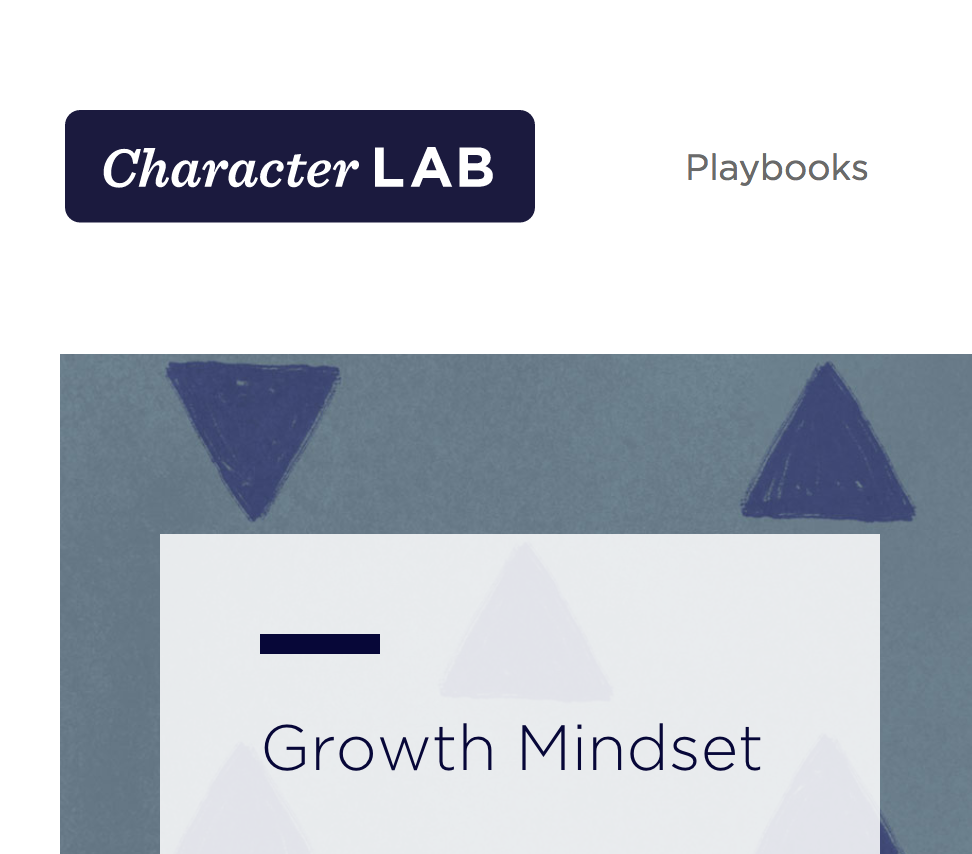
Character Lab is a nonprofit organization founded to research and create new ways to help all students develop character. While research suggests character is important to academic and life success, little is known about cultivating it. This site includes links to several playbooks with lesson plans, videos, and activities to help students learn character-building strategies… Read More ›
Innovative Assessments: Widening the Horizon
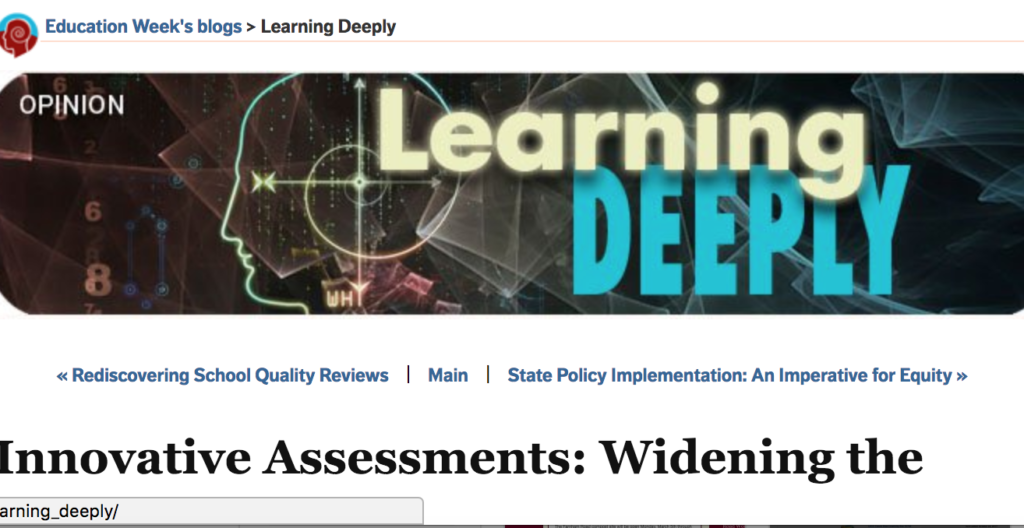
In this blog article, the Innovation Program Manager at The Council of Chief State School Officers explores the opportunities under ESSA for states to innovate their assessment programs. In particular the author looks at innovations in summative assessments such as the use of performance assessments as part of a state’s summative assessment system and the establishment… Read More ›
Creating a Welcoming & Inclusive Community For All

This document, created by Magnolia Montessori For All Schools in Austin, TX, is an excellent example of a school’s effort to codify their commitment to teaching students to value their identity, respect diversity, understand justice, and take action to fight bias and discrimination. The school went through a process to articulate their values and assemble… Read More ›
Courageous Conversations About Race in Schools
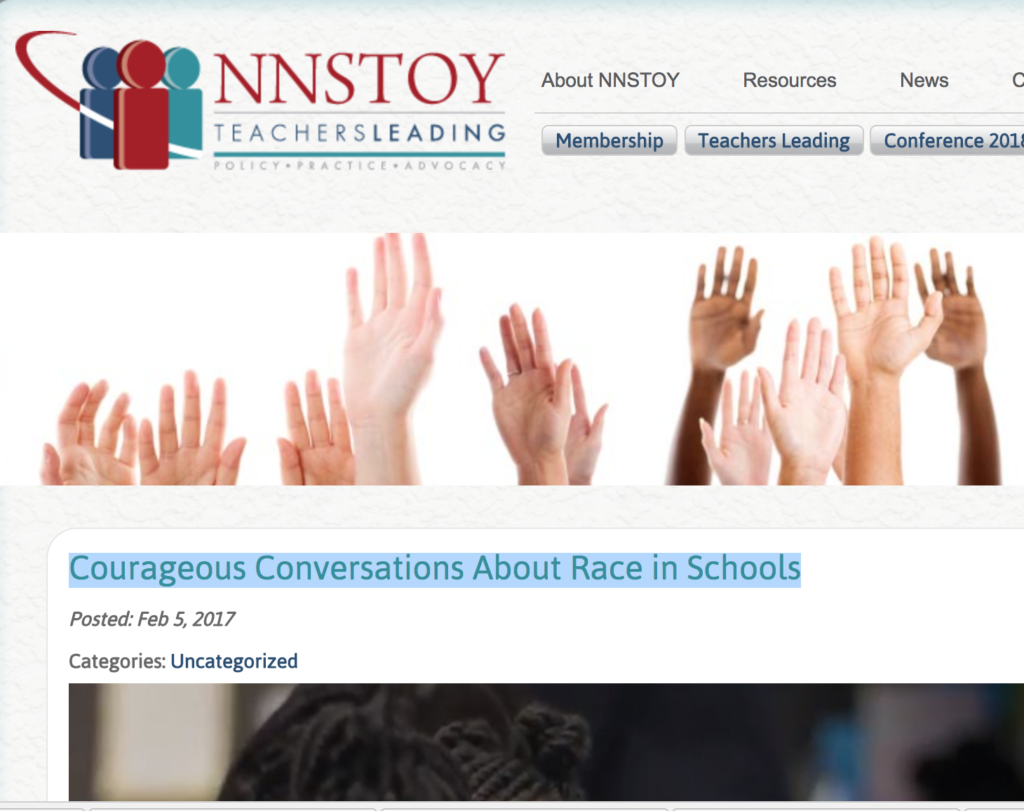
These short videos are designed to prompt a deeper, more authentic discussion about issues of racial equity in schools. State Teachers of the Year and other educators at the 2017 National Teacher Leadership Conference, speak candidly about equity, sharing their experiences and ideas on how to move forward. The videos are accompanied by discussion guides… Read More ›
Highlighting Deeper Learning Competencies in New Hampshire
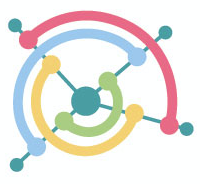
This blog was originally posted by CompetencyWorks on March 12, 2018. It is hard to argue the importance that being a strong collaborator, an articulate communicator, a self-directed learner, and a creative problem solver has on a person’s success in today’s world. In fact, a recent analysis by Valerie Strauss from the Washington Post on… Read More ›
The 5th ‘C’ of 21st Century Skills? Try Computational Thinking (Not Coding)
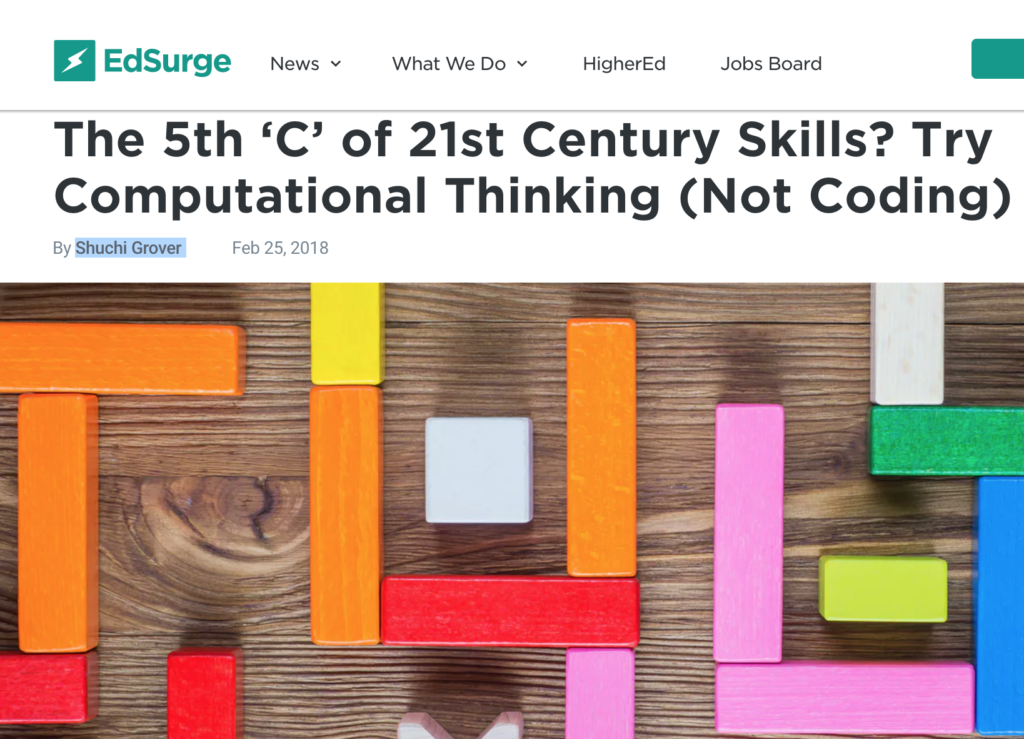
In this commentary, the author asserts the importance of computational thinking, the ability to solve problems like a computer scientist. Like critical thinking and communication, this skill is needed for academic and career success across disciplines. The article explains how computational thinking relates to coding/programming and lays out the skills needed to become computational thinker.… Read More ›
How to Ease Students Into Independent Inquiry Projects
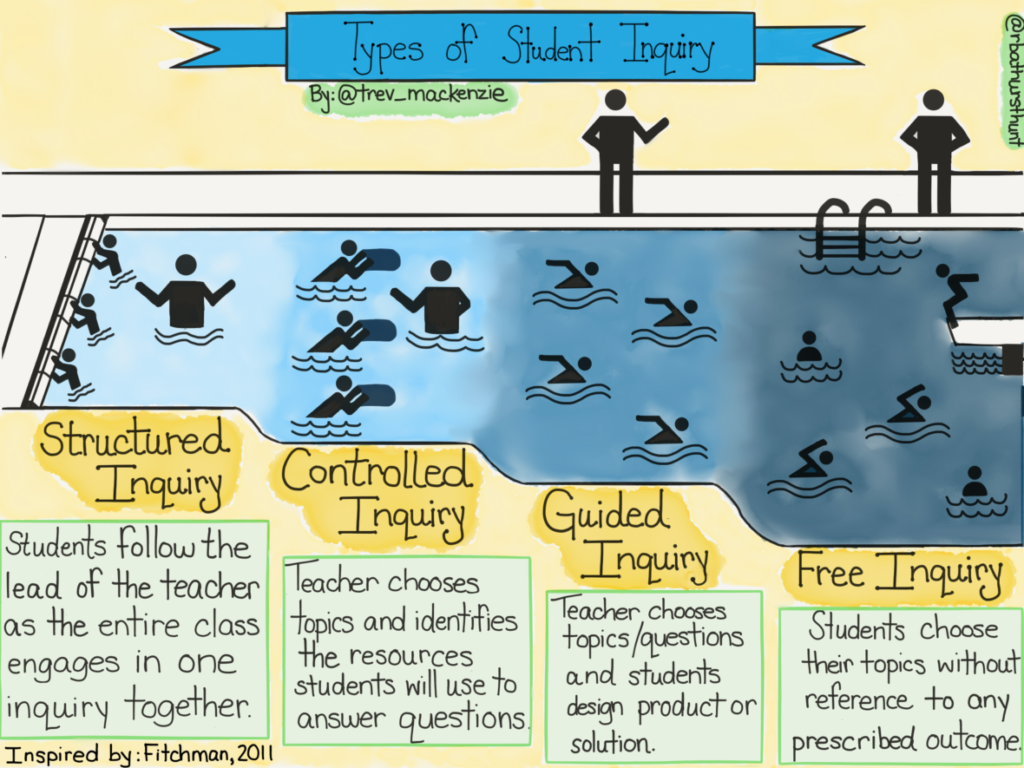
This post is an excerpt from the book, Inquiry Mindsets: Nurturing the Dreams, Wonders, and Curiosities of Our Youngest Learners. Trevor MacKenzie first describes a powerful passion-based, free inquiry project completed by an introverted student in his H.S. English course. Next he describes the type of scaffolding students need in order to take on such inquiry projects.… Read More ›
When It Comes to Universal Design for Learning, Don’t Wait to Be an Expert
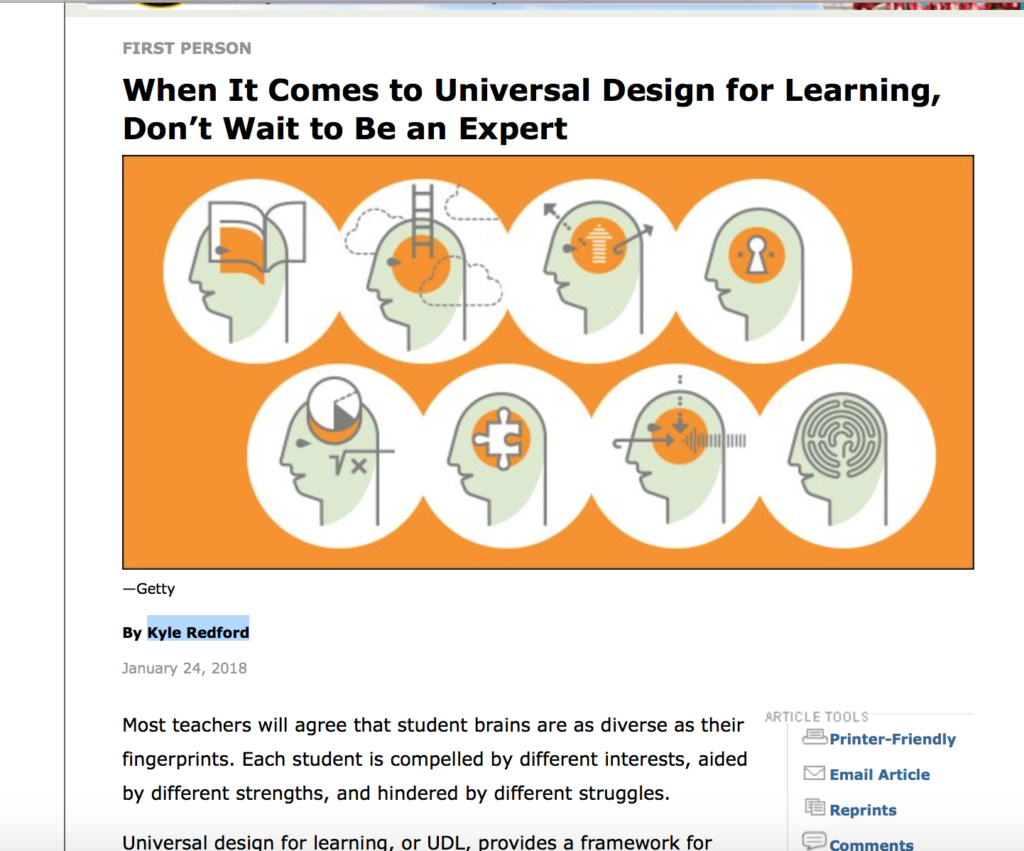
This article provides a great overview of how to apply Universal Design for Learning principals in the classroom. The author describes his journey to introduce UDL in his 5th grade classroom. He describes how adapting the delivery of content, introducing assistive technology, or granting assessment accommodations for an individual student usually proved helpful to many… Read More ›